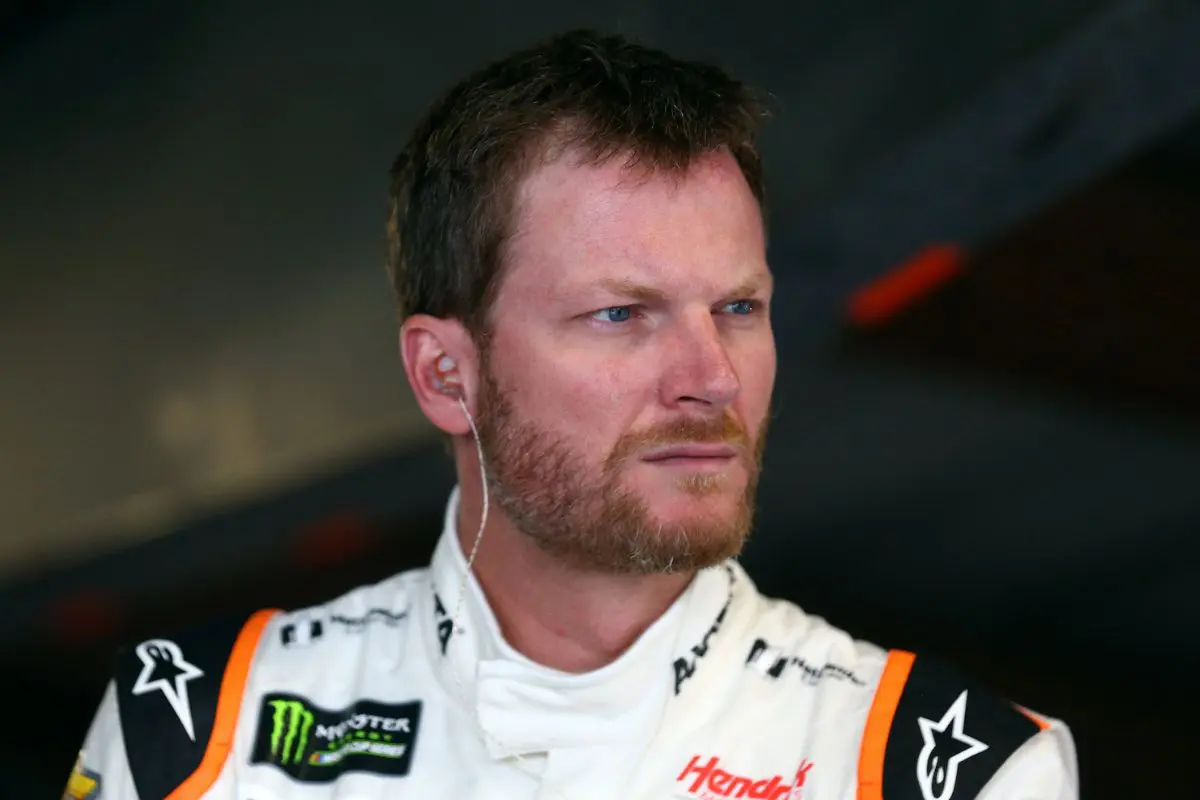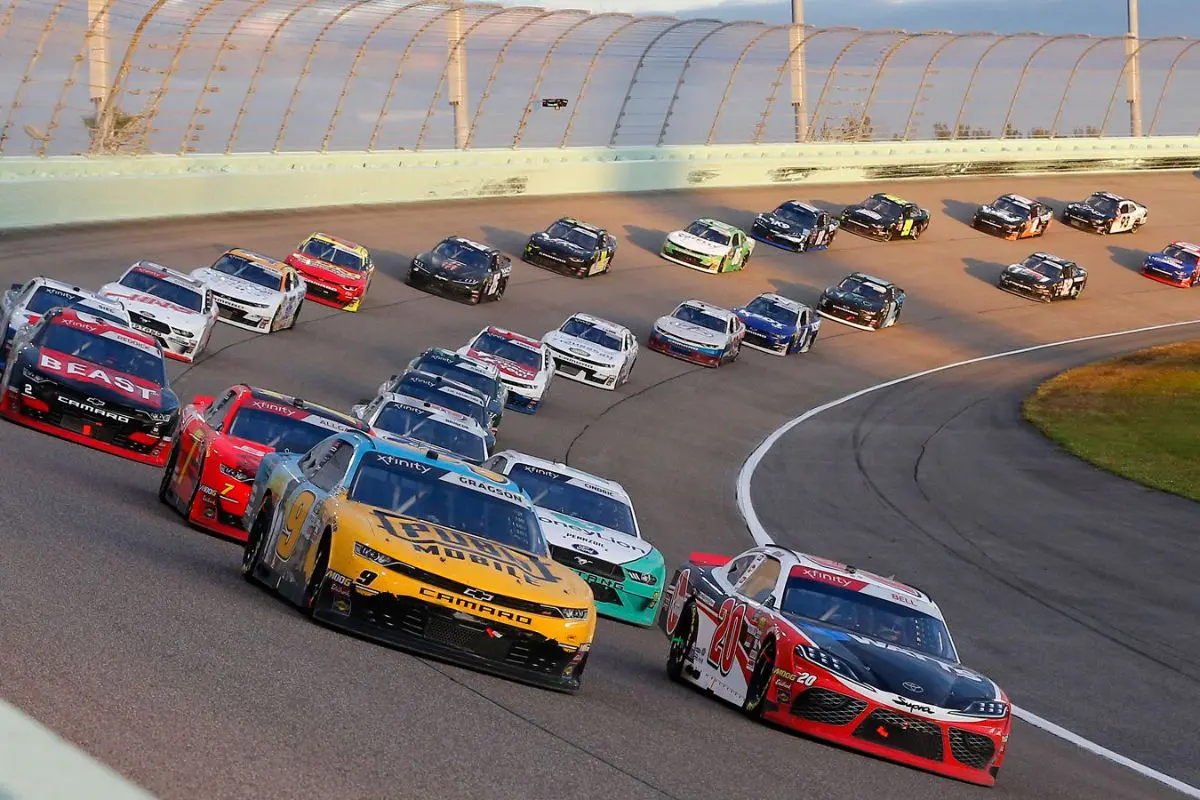Dale Jr.’s NASCAR Team Ownership Vision Faces Setback: Dale Earnhardt Jr.‘s aspirations to establish a NASCAR Cup Series team have encountered considerable challenges, particularly the ongoing tensions between NASCAR and 23XI Racing over charter ownership. This discord jeopardizes Earnhardt’s ambition to compete in the iconic Daytona 500 and raises questions about the future of team ownership in a sport deeply rooted in tradition. As he endeavors to honor NASCAR’s legacy while nurturing emerging talent, the outcome of these disputes could reshape the competitive landscape. What remains uncertain is how these developments will influence Earnhardt’s vision and the broader dynamics of the series.
Key Highlights
- Dale Earnhardt Jr.’s aspiration for NASCAR ownership is challenged by ongoing tensions between NASCAR and team charters, impacting his plans for a competitive team.
- The stalemate around charter ownership complicates Dale Jr.’s goal to participate in the prestigious Daytona 500 as a team owner.
- Strategic alliances, similar to those between Hendrick Motorsports and McLaren, are essential for Dale Jr. to navigate entry into the Cup Series.
- A potential resolution between NASCAR and 23XI Racing could revitalize Dale Jr.’s ownership vision, fostering sponsorship opportunities and fan engagement.
- The outcome of the current conflicts may determine the future viability of Dale Jr.’s dream of establishing a successful NASCAR team.
Dale Earnhardt Jr.’s Aspirations for Cup Series Ownership
Driven by a passion for the sport and inspired by his conversation with Mario Andretti, Dale Earnhardt Jr. has set his sights on ownership in the NASCAR Cup Series. This ambition is not merely a personal aspiration but a reflection of his deep-rooted connection to racing and the legacy of the Earnhardt name.
During their discussion, Earnhardt playfully suggested a collaboration with the Andretti racing family to investigate ownership opportunities, highlighting the potential for synergies between two iconic racing lineages.
However, the current landscape poses considerable challenges. The existing stalemate between NASCAR and 23XI Racing complicates the acquisition of charters, which are crucial for entry into the competitive arena of the Cup Series. Such barriers may dissuade potential investors and complicate the path to ownership, even for a figure as influential as Earnhardt.
Despite these hurdles, his resolve remains steadfast; he envisions participating as a team owner in the illustrious Daytona 500, a race synonymous with prestige and historical importance in American motorsport.
Earnhardt’s aspirations emphasize a broader trend in the sport, where former drivers shift into ownership roles, bringing their expertise and passion back to the track. His vision for ownership not only represents a personal goal but also signifies a commitment to nurturing the next generation of talent in NASCAR.
As he navigates these complexities, the racing community watches closely, enthusiastic to see how Earnhardt’s ambitions unfold amidst the evolving dynamics of the Cup Series.
The JRM Cup Series Team Idea
The prospect of Dale Earnhardt Jr. establishing a Cup Series team under the banner of his JR Motorsports (JRM) presents an intriguing development in the NASCAR landscape. As the sport continues to evolve, Earnhardt’s ambition reflects a broader trend of former drivers moving into ownership roles, blending their on-track experience with entrepreneurial endeavors.
“If y’all wanted to change courses, maybe the Earnhardt’s and Andretti’s could team up and buy a couple of NASCAR charters,” -(Dale Jr.)
His recent podcast discussion with McLaren CEO Zak Brown highlights this aspiration, particularly the desire to compete in the prestigious Daytona 500.
This partnership between Hendrick Motorsports and McLaren demonstrates the potential for cross-series collaboration, which could serve as a model for JRM’s Cup Series ambitions. Earnhardt’s enthusiasm is visible; he openly shares his dream of not just entering the NASCAR ranks, but specifically participating in the Daytona 500, a significant race that symbolizes the pinnacle of stock car racing.
“I’ve got the same dream as you. You know, growing up in NASCAR, the idea of owning a car full time is a hell of an idea. But now the one thing that I hope happens for me one day is to be an owner entered into the Daytona 500. I just want that experience; if only that experience, that’s the one I hope for,” – (Dale Jr.)
The collaborative ethos clear in the Brown-Earnhardt dialogue suggests that forming tactical alliances could be vital for JRM’s success. By using existing relationships within the sport, particularly with established entities like Hendrick Motorsports, JRM can navigate the complexities of Cup Series entry more effectively.
However, the path to ownership is fraught with challenges, including financial investment and the intricacies of team management. As Earnhardt pursues this dream, the NASCAR community watches closely, recognizing that his expedition could redefine the landscape of team ownership and inspire a new generation of drivers to take the leap into management.
The question remains: will this ambition come to fruition, or will it remain a tantalizing dream?
Dale Earnhardt Jr.’s Emotional Perspective on Ownership
Dale Earnhardt Jr.’s aspirations for team ownership extend beyond mere ambition; they are deeply rooted in his emotional connection to the sport and its storied history. As a two-time Daytona 500 champion, Earnhardt’s desire to field a car in NASCAR isn’t just about the accolades; it embodies a yearning to engage with the heritage of the sport on a more profound level.
“Because that’s kind of the main stage in NASCAR and you want to experience it once. I’ve done it as a driver in a lot of different ways, but I think rolling a car out there as an owner, saying. Alright, we’re here, we’re ready to go, putting a car on the grid. That would be a great experience,”-(dale jr.)
His perspective highlights the significance of the Daytona event, which he describes as “the main stage in NASCAR.” This sentiment resonates with a generation of fans and participants who recognize the grandeur associated with this iconic race.
The prospect of rolling out a car under his ownership banner, even for a single event, is laden with emotional weight. Earnhardt states a vision where he is not just a participant but a steward of the legacy that NASCAR represents.
His enthusiasm to experience ownership reflects a broader desire to contribute to the sport’s future, much like his contemporaries—Tony Stewart, Denny Hamlin, Brad Keselowski, and Jimmie Johnson—who have shifted from drivers to team owners.
Through ownership, Earnhardt seeks to cultivate an environment that honors the past while nurturing upcoming talent. This dual focus emphasizes his profound respect for the sport’s history and his commitment to its evolution.
Ultimately, his emotional perspective on ownership covers a blend of nostalgia and ambition, a narrative that resonates deeply within the NASCAR community.
Dale Earnhardt Jr. on the NASCAR and 23XI Racing Stalemate
Tension defines the current stalemate between NASCAR and 23XI Racing, as conflicting perspectives on charter ownership emerge. Dale Earnhardt Jr. highlights the crux of the issue, noting that NASCAR never intended for charters to evolve into franchises akin to those in other major American sports leagues. Instead, the organization aimed to assure teams a starting position on the grid and share in television revenues, without relinquishing full ownership rights.
This evolving landscape has led to a fundamental clash of values between NASCAR and the teams, particularly regarding the nature of charters. Earnhardt Jr. articulates this shift effectively:
- Charters as franchises: Teams now perceive their charters as valuable assets, similar to owning a professional franchise.
- Value creation: Teams have infused their charters with considerable value, reshaping their role within the sport.
- Divergent visions: NASCAR’s initial framework contrasts sharply with the teams’ aspirations for greater autonomy and ownership.
- Negotiation impasse: The lack of common ground exacerbates tensions, leaving both parties at an impasse.
Earnhardt Jr. acknowledges the validity of both sides, understanding the teams’ desire for ownership while recognizing NASCAR’s position.
“The teams have shifted the idea that a charter is a franchise. The charter is like owning the Indianapolis Colts. I don’t think that NASCAR ever thought it would be that. Now the teams have created value in owning the charters, and to them, it is as if they have a franchise in their hands. So I can see both sides of it, and so I think that’s where there’s not a lot of command ground between the two.” -(Dale Jr.)
This stalemate not only complicates the dynamics within the sport but also raises questions about the future of team ownership in NASCAR. As the situation unfolds, the need for a resolution becomes increasingly urgent for the continued health of the racing series.
The Potential Resolution Between NASCAR and 23XI Racing
Navigating the complex landscape between NASCAR and 23XI Racing, there is a growing sense of optimism that a consensus may be attainable. Despite a public feud that has cast a shadow over both entities, influential figures like Dale Earnhardt Jr. advocate for a resolution, highlighting the necessity of collaboration within the sport.
This belief contradicts the more sensational narratives suggesting NASCAR might seize 23XI’s charters, a move that would inevitably plunge both parties into protracted legal disputes.
The foundation for this potential reconciliation rests on mutual interests. NASCAR recognizes the value of diverse ownership within the series, particularly with the emergence of teams like 23XI Racing, which aim to bring new perspectives and attract broader audiences.
Conversely, 23XI, co-owned by Denny Hamlin and Michael Jordan, seeks stability and a conducive environment to flourish, which can only be achieved through constructive dialogue rather than conflict.
Moreover, the interplay of economic factors cannot be overlooked. The racing industry thrives on sponsorships and fan engagement, both of which could wane amid a bitter feud.
Therefore, a resolution could serve as a accelerator for revitalizing the brand and enhancing the competitive landscape.
News in Brief: Dale Jr.’s NASCAR Team Ownership Vision Faces Setback
Dale Earnhardt Jr.’s aspirations for establishing a NASCAR Cup Series team highlight the complexities of team ownership within the current competitive landscape. The ongoing feud between NASCAR and 23XI Racing presents noteworthy challenges that could impede not only Earnhardt’s ambitions but also the broader dynamics of the sport. A resolution to these disputes is crucial for fostering new talent and preserving the legacy of NASCAR, ultimately determining the future viability of prospective ownership endeavors in the series.
ALSO READ: Dale Earnhardt Jr. Prefers Flipping Over Dad’s Fate, Supports Denny Hamlin’s Crash Views




